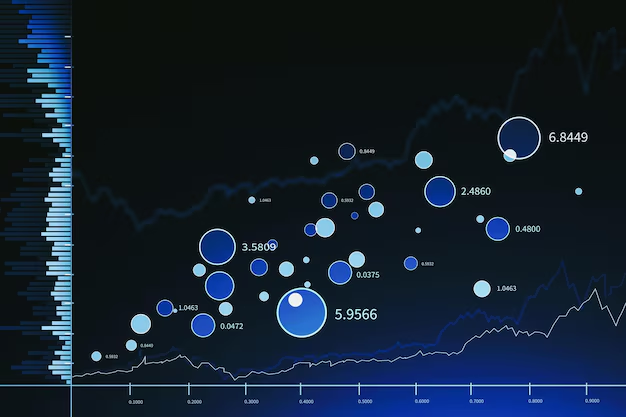When Will the Last Bitcoin Be Mined? Exploring the Future of Bitcoin Mining
Bitcoin has captured the imagination of investors, technologists, and curious minds worldwide. At the heart of this cryptocurrency is a unique system that governs its issuance and circulation. With a finite supply of 21 million coins, a pressing question arises: When will the last Bitcoin be mined? This article delves into this intriguing topic, examining the factors that influence Bitcoin mining's timeline and its broader implications for the cryptocurrency ecosystem.
Understanding Bitcoin Mining
To grasp when the last Bitcoin will be mined, it's essential to understand what Bitcoin mining is and why it matters.
What is Bitcoin Mining?
Bitcoin mining is the process by which new bitcoins are entered into circulation. It is also a critical component of the maintenance and development of the blockchain ledger. Miners use powerful computers to solve complex mathematical problems. When one is solved, the miner is rewarded with a certain number of bitcoins. This process is known as proof of work and ensures the system's security and integrity.
The Discovery Rate
Bitcoin mining is governed by a protocol that determines the rate at which bitcoins are mined. Initially, miners received 50 bitcoins for each block they successfully mined, but this reward is halved approximately every four years, a process called halving. The halving events are pre-programmed into Bitcoin's protocol to occur every 210,000 blocks.
Bitcoin's Finite Supply
A defining feature of Bitcoin is its finite supply—only 21 million coins will ever exist. This cap is part of the protocol designed by Bitcoin's pseudonymous creator, Satoshi Nakamoto. This scarcity is often likened to precious metals like gold and is a significant factor in Bitcoin's value proposition.
The Halving Phenomenon
The halving process is pivotal in determining when the last Bitcoin will be mined.
Why Halving Matters
Every halving event reduces the reward for mining a block by 50%. As of now, the reward stands at 6.25 bitcoins per block. The next halving is expected to occur around 2024, reducing the reward to 3.125 bitcoins. This decreasing reward extends the timeline for mining the last Bitcoin.
Implications of Halving
Halving not only decreases the supply of new bitcoins but also exerts upward pressure on their price if demand remains constant or increases. It ensures that the supply is distributed over a prolonged period, delaying the exhaustion of mineable bitcoins.
Estimating the Last Bitcoin's Timeline
Given the pattern of halving and current mining pace, estimates suggest the last Bitcoin will be mined around the year 2140.
Factors Influencing This Estimate
Technological Advancements: The efficiency of mining equipment can significantly influence the rate at which blocks are mined. More efficient hardware could speed up block creation.
Energy Consumption: Bitcoin mining is energy-intensive. As the reward diminishes, profitability depends more on energy costs, which could affect the number of active miners.
Network Difficulty: The Bitcoin protocol adjusts the difficulty of mining approximately every two weeks based on the total mining power. This ensures a constant block time of around 10 minutes.
Implications of the Last Bitcoin Being Mined
While mining the last Bitcoin signals an end to new coins entering circulation, the Bitcoin network will continue to function.
The Role of Transaction Fees
Once all the Bitcoins are mined, miners will no longer receive block rewards. Instead, they will rely entirely on transaction fees as their incentive to continue validating transactions and maintaining the network.
Network Security
The reliance on transaction fees could pose a security concern. To ensure the network remains secure, these fees need to be attractive enough for miners to continue their operations.
Market Impact
When the last Bitcoin is mined, all bitcoins will have entered circulation. The market dynamics could shift towards a more classic supply-and-demand model, where the scarcity of new supply might influence Bitcoin's value.
Bitcoin's Broader Impact
Bitcoin mining's timeline underscores its influence on various industries and economies.
Economic Influence
Bitcoin has already impacted how individuals and institutions perceive and use money. The finite supply may continue to position Bitcoin as a hedge against inflation and a store of value.
Environmental Considerations
The energy consumption of Bitcoin mining is a hotly debated topic. As mining becomes more reliant on transaction fees, energy efficiency may become a business necessity rather than an optional improvement.
Technological Developments
The need for efficient mining solutions has driven technological advancements in fields such as computing and renewable energy. This innovation might continue, helping to mitigate environmental concerns while enhancing network security.
Behavioral Shifts
As Bitcoin's total supply cap nears, collector behavior and long-term holding strategies might evolve, influencing the market's liquidity and trading patterns.
Summary: Key Insights on Bitcoin's Mining Future
- 🕑 Timeline Projection: The last Bitcoin is projected to be mined around 2140.
- 🔨 Halving Events: Occur approximately every four years, reducing miner rewards.
- 💰 Influence on Price: Halving shrinks supply flow, possibly impacting Bitcoin's market value.
- 🔥 Energy & Tech: Energy use and mining tech developments directly affect mining's future.
- 📈 Post-Mining Structure: Miner incentives will shift to transaction fees to maintain network operations.
The end of Bitcoin mining will mark a significant milestone in the journey of cryptocurrencies. Understanding when this will occur, and its potential impacts, provides insight into the evolving nature of digital assets and their role in our economic future. As we move closer to this pivotal event, the conversation about Bitcoin will undoubtedly continue to expand, encompassing economic, environmental, and technological dimensions.

